South Sudan
In South Sudan, livestock is a key livelihood for pastoralists like Michael Lokuru Kuri, but their livelihood that is threatened by conflicts due to competition for scarce resources, and by climate change.
The 34-year-old pastoralist said he was raided twice and left with only five cattle. He had to work hard to rebuild the herd, as he explained, that amid tense relations with neighbouring communities in Kapoeta South County, Eastern Equatoria State in the southeastern part of South Sudan.
Earlier, the prolonged dry season had forced him to take his animals far from his village of Nakoringomo for grazing and thus heightened the risk of conflict over water resources.
In South Sudan, one of the five most climate-vulnerable countries in the world, devastating climate extremes pose significant challenges for local communities.
Following four years of extensive floods, the eastern part of the country was hit by a severe drought in 2023. Last May, some eastern regions experienced their driest month in 43 years.
Faced with water shortages and crop failures, South Sudanese farmers and pastoralists suffer from low production, low incomes, and insufficient assets to survive. Some 7.8 million people, almost two-thirds of the country's population, are acutely food insecure.
But with support from the Food and Agriculture Organization of the United Nations (FAO) through funding from the Africa Development Bank (AfDB), and in partnership with the Government of South Sudan, in excavating a 30 000 m3 reservoir and providing a solar-powered water pump, Lokuru and other pastoralists do not need to take their animals to other locations for water anymore.
On Lukuru’s farm, the ravages of climate change are clearly visible in the cracked soil and withered crops on his fields. He said all crops, including the sorghum, supposed to be relatively climate-resistant, were destroyed by the sun, as he crumbled the desiccated crop through his fingers.
"There have been changes in the weather. Last year was okay, but this year has been very bad. The crops are dying, nothing was harvested.”
So it’s all the more important for the family’s livelihood to keep their livestock healthy.
Lokuru is one of 30 community animal health workers who has been trained to administer vaccines to his animals and those of his fellow villagers in an FAO-supported training in the whole of Kapoeta South County.
The training for community animal health workers like Lukuru, who was nominated by his own community, includes administering vaccines, identifying diseases, dividing the sick animals from the healthy ones, deworming and treating them.
"I consider myself as a leader because I have the knowledge. FAO has trained me in so many things, I give treatment and vaccination something that other people cannot do."
Lokuru now wants to share knowledge and train younger pastoralists to promote animal health and food security.
Quinto Asaye Alex, Inspector for Veterinary Services in Kapoeta, Eastern Equatoria, who trains Lokuru says that the vaccination project has greatly contributed to protecting the livelihoods of agropastoral communities in the area.
Implemented by FAO on behalf of the African Development Bank and the Government of South Sudan, the project is part of the Build Resilience for Food and Nutrition Security in the Horn of Africa (BREFONS) programme, to boost the resilience and adaptive capacity of communities in the face of climate change.
Meshack Malo, FAO Representative in South Sudan, says the country’s concerning level of food insecurity is a major challenge.
". In this country, we still have over 70 percent of people who, at one time or the other are not sure where they're going to get their next meal. The production levels are low and the lack of peace due to the fighting that has taken place. The country is yet to fully recover, so that food insecurity is a big challenge. Secondly, with the global challenge of climate change, it has not been spared. And so the country finds itself in this double challenge and sometimes even triple challenge with floods, with dry conditions."
FAO’s emergency and development projects in the country have supported local communities to build resilient agriculture-based livelihoods.
In Kapoeta, almost 400 000 households have received water harvesting and livestock services through the BREFONS programme.
In 2022, FAO and its partners helped 4.3 million people in South Sudan through seed and tool distribution, livestock support, and cash and voucher assistance."




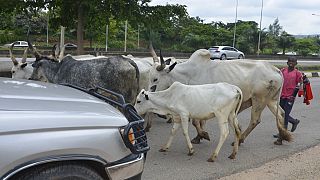
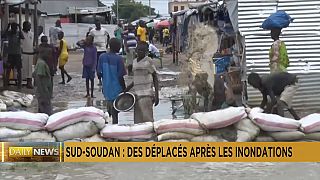
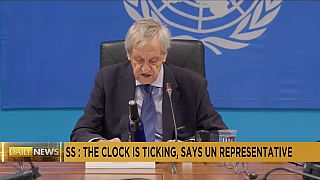
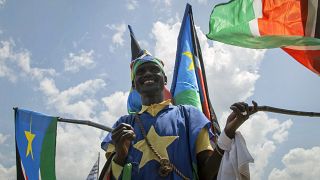
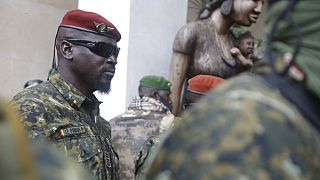
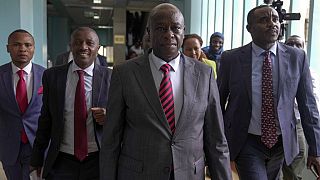
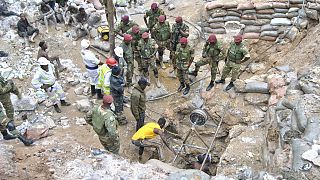
01:40
UN report warns of famine, aggravated by conflicts and climate shocks
01:26
UN: Southern Africa faces worst hunger crisis in decades due to El Niño
01:36
World's rivers experience driest year in over 3 decades
01:38
New York meeting seeks unified approach to Sudan's ongoing crisis
01:23
Brazil drought hits coffee farms and threatens to push prices even higher
01:06
Zimbabwe announces plans to cull dozens of elephants, due to food shortages from drought